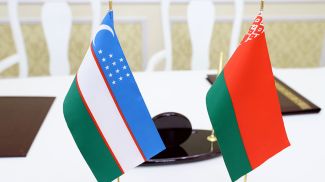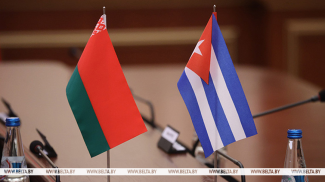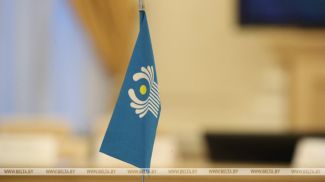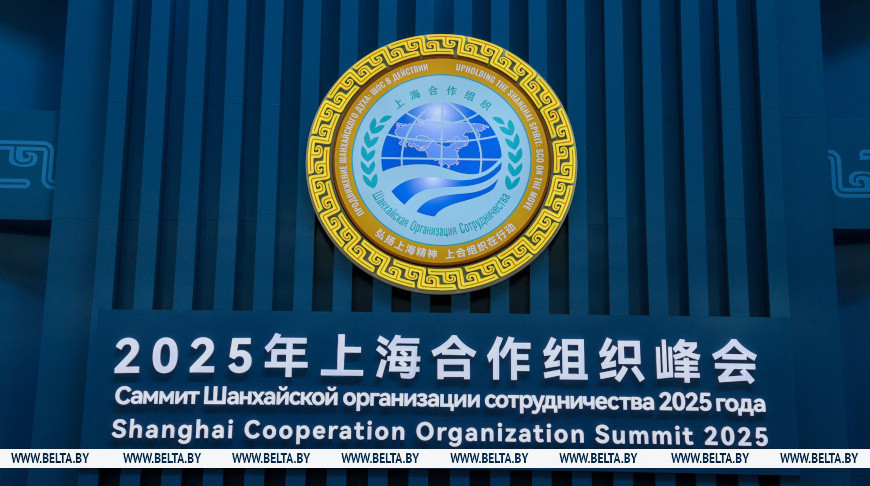
The Shanghai Cooperation Organization (SCO) summit was held from 31 August to 1 September in Tianjin, China. The largest non-Western forum, as it was dubbed by the foreign press, brought together leaders of more than 20 countries, as well as heads of a number of international organizations. The summit drew more than 3,000 journalists, with coverage from the event gracing the front pages of the world’s most influential media outlets.
Assessments by Western and non-Western journalists and experts traditionally differ. But this time, at least one assessment was the same – multipolarity has already arrived. This fact was acknowledged by Belarusian President Aleksandr Lukashenko at a meeting of the SCO Council of Heads of State. The Belarusian leader announced that being part of the “Shanghai family” is a strategic choice for Belarus.
According to a report by SWI (the international service of the Swiss broadcaster SRG SSR), the president noted a strategic pivot: as relations with the West sour, Belarus is increasingly strengthening its ties with non-Western powers, namely China and Russia.
According to SWI, Aleksandr Lukashenko emphasized the SCO’s status as one of Eurasia’s most representative and influential organizations, stating that its expanding membership is a natural development. The publication further notes that the SCO – representing 40% of the world’s population – functions as a major forum for integrated political, economic, and defense collaboration.
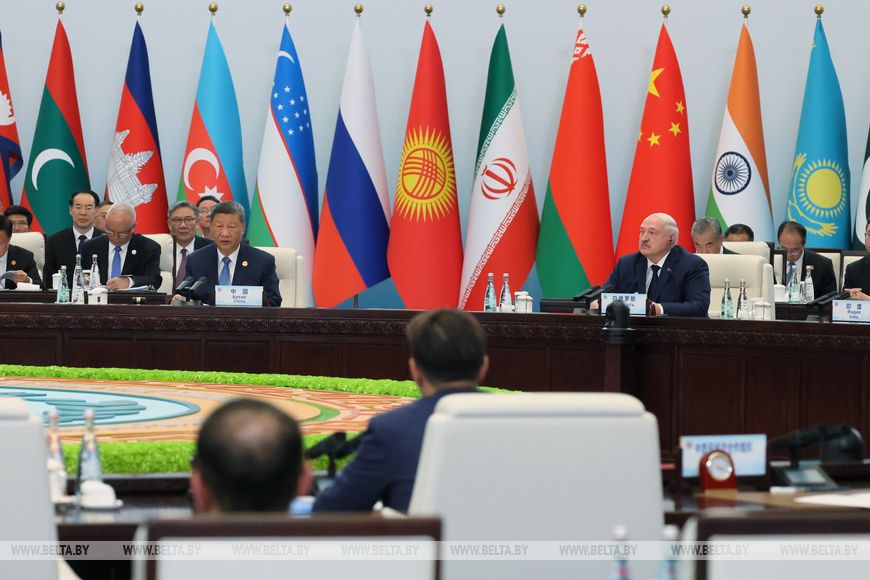
“China, Belarus and India are bolstering their alliances at the SCO summit in Tianjin. Xi Jinping is strengthening relations with Lukashenko and Modi, demonstrating friendship and strategic cooperation in the face of global challenges,” the Spanish newspaper La Vanguardia writes.
The publication notes that the 25th SCO summit took place against the backdrop of the conflict in Ukraine, global economic upheavals caused by U.S. protectionist measures, and the West’s desire to isolate Russia and Belarus. “Despite the absence of mutual defense provisions in the SCO Charter and the presence of internal rivalries, this summit is intended to demonstrate unity, expand regional coordination, and offer multilateral responses to economic, trade, and humanitarian crises. The rapprochement between China and India after years of border clashes and the strengthening of Belarus’ position as China’s partner are examples of efforts to create an image of unity and pragmatism for the entire world,” La Vanguardia writes.
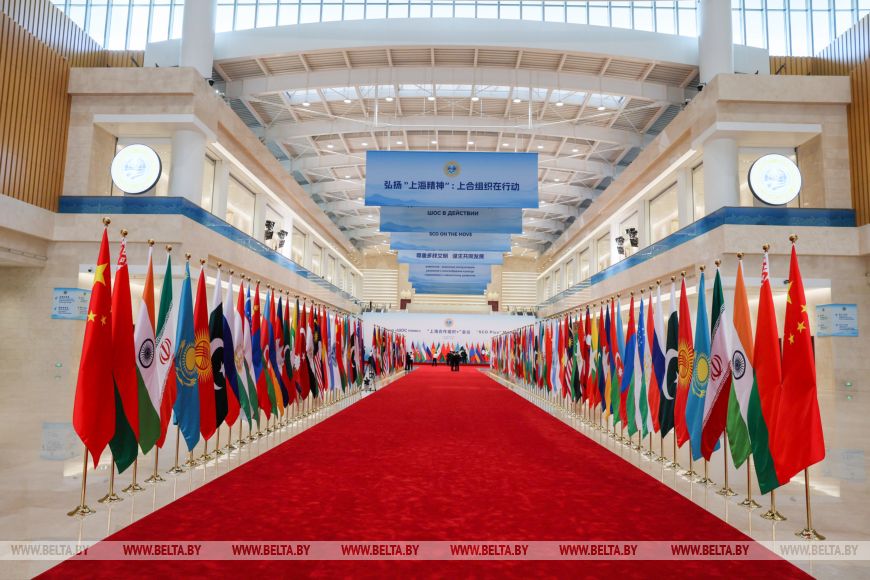
The elevating of the strategic partnership between Belarus and China was also widely covered by Chinese media during the summit. Much attention was paid to the bilateral meeting between Aleksandr Lukashenko and Xi Jinping in Tianjin, and it was emphasized that the leaders have long had friendly relations. “Belarus officially became the SCO’s 10th member at last year’s Astana summit. In June, Xi received Belarusian President Aleksandr Lukashenko at the Zhongnanhai compound in Beijing. Lukashenko told Xi during his visit that he truly felt the profound friendship extended by China,” writes the Chinese publication China Daily.
The Chinese news agency Xinhua notes that the Tianjin summit was the largest in the history of the organization. The forum participants reaffirmed their commitment to the Shanghai Spirit, which implies mutual trust, equality, respect, and the commitment to shared development.
“Today, amid global turbulence, this spirit has gained wider recognition for offering a cooperative vision grounded in dialogue rather than confrontation, inclusiveness rather than exclusivity, and mutual benefits rather than a zero-sum game. That explains why the SCO can draw more and more followers, while the Shanghai Spirit can resonate so strongly worldwide,” Xinhua writes.
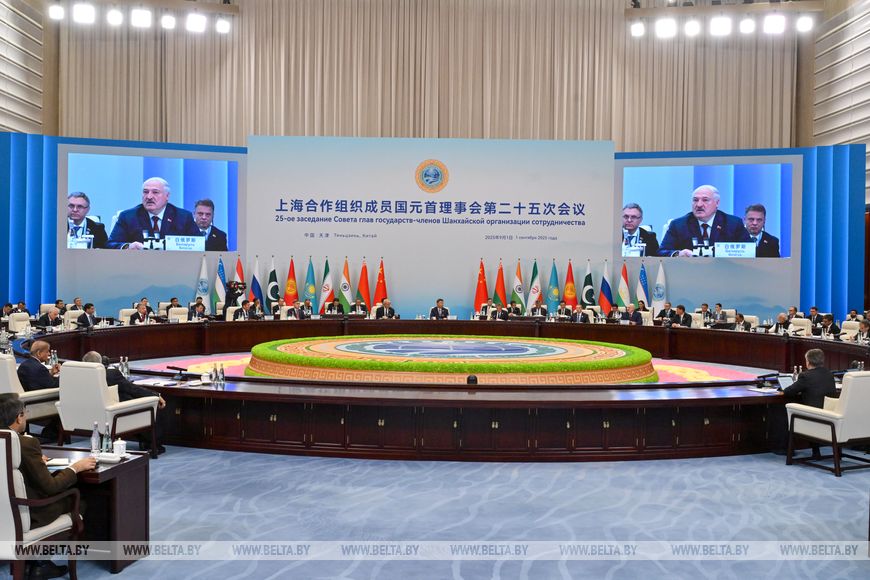
The agency also cites excerpts from an interview with Aleksandr Lukashenko before the Tianjin summit. In it, the Belarusian president said that the SCO has developed a unique model of regional security and development based on multilateral cooperation. The Belarusian leader stressed that the organization has proven that security issues can be addressed not through confrontation, but through cooperation – by sharing intelligence, holding exercises, and building trust between countries.
The SCO “offers a new approach to international relations, distinct from Western hegemonic models, while the Shanghai Spirit ensures member states cooperate as equals and reach consensus,” Aleksandr Lukashenko was quoted as saying.
Japanese broadcaster NHK cites Xi Jinping’s words addressed to the leaders of the SCO member states. In his speech, the Chinese leader called for solidarity in order to create a multipolar world.
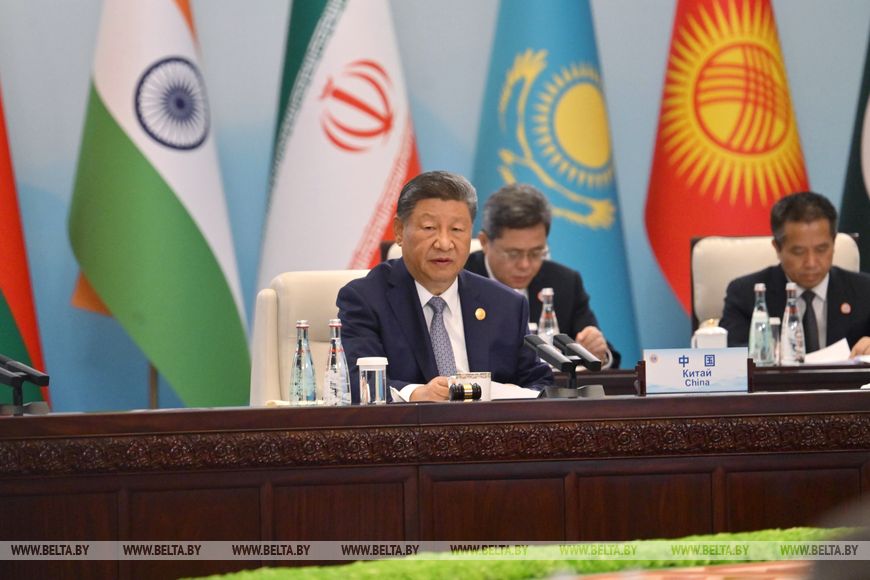
“Xi said the SCO has grown to the world’s largest regional organization and its international influence is increasing day by day. He said states should oppose the Cold War mentality, bloc-based confrontation and bullying, apparently with U.S. President Donald Trump’s administration in mind. He went on to say that they should advocate for an equal and orderly multipolar world. Xi also said China will establish an SCO bank at an early date to assist security and economic cooperation for the member countries,” NHK reported.
Channel News Asia notes that the SCO now includes ten full members, two observer states, and 14 dialogue partner countries. Together, they account for nearly half of the world's population, a quarter of its territory, and about a quarter of global GDP.
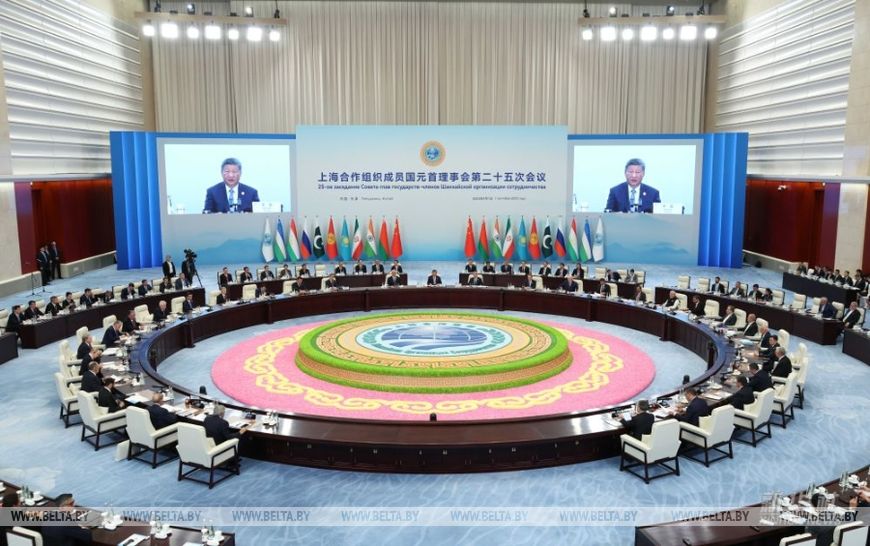
“Analysts point out that the message Beijing hoped to convey at the Tianjin summit is one of influence, power, and unifying strength in a turbulent global climate, although they warn that internal disagreements may weaken these ambitions,” Channel NewsAsia reports.
The summit in Tianjin demonstrates that the rules of the game in the world are changing, writes the Indian newspaper The Economic Times. The publication believes that India and Russia have united with China under the influence of a shifting geopolitical landscape. Now, the three leaders are acting in sync.
“Forget the usual order of things. The 25th summit of the SCO Heads of State Council in Tianjin was not just another diplomatic meeting. It became the largest in the history of the SCO and was clearly aimed at something significant. Xi Jinping used this platform to present a new world order based on multipolarity, multilateralism, and the leadership of the Global South, a calculated move against U.S. dominance,” the Indian publication asserts.
The Economic Times also notes that this time the SCO summit was action-oriented. “We see how ideas are being translated into institutions, funding promises are laid out clearly, and key players are moving forward rather than wandering through distant rooms,” the publication writes.
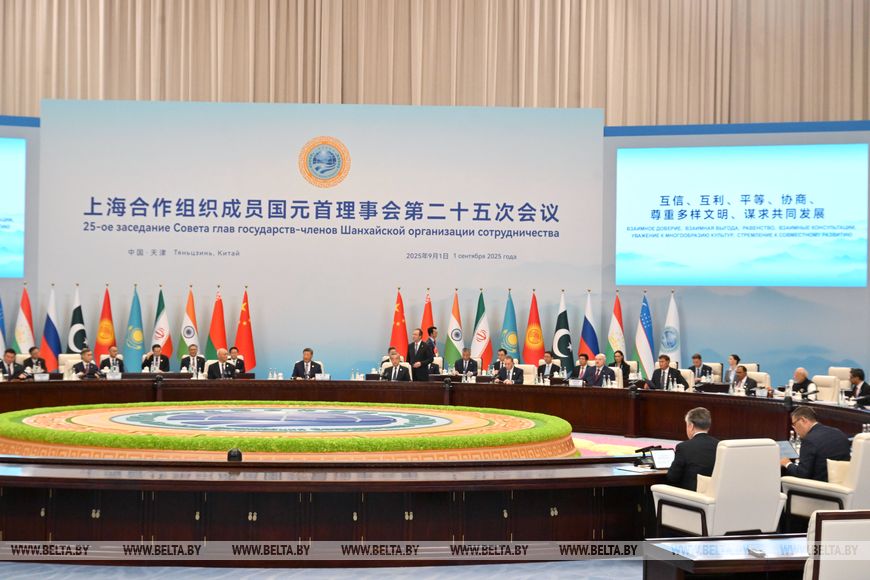
“The SCO summit may challenge U.S. dominance and lend weight to China's vision of a multipolar world,” reports the American news agency Associated Press.
The agency points out that the SCO was originally conceived as a “counterbalance to U.S. influence” in Central Asia, but its geography has since expanded. In 2017, India and Pakistan joined the organization, followed by Iran in 2023 and Belarus in 2024.
Experts surveyed by the agency note the strengthening image of the SCO on the world stage. Political scientist Dali Yang from the University of Chicago stated that the SCO is one of the most influential regional organizations in which China has participated. Chinese politics expert June Teufel Dreyer from the University of Miami believes that the SCO aims to transform from a dialogue platform into “a full-fledged mechanism for practical cooperation that brings tangible results to the citizens of member states”. Professor Alfred Wu from the Lee Kuan Yew School of Public Policy at the National University of Singapore suggested in a comment to the Associated Press that Xi Jinping seeks to create “an alternative world order as the U.S.-led order is in decline”.
The Wall Street Journal notes that the leaders of Russia, China, and India demonstrated unity during the SCO summit. The publication views this as a challenge to Donald Trump's foreign policy. “Trump seeks to contain Beijing, cut Russia’s ties with China and dissuade India from buying Russian oil. According to Michael Fullilove, executive director of the Lowy Institute in Australia, the warmth in Tianjin causes alarm in Western capitals,” the article states.
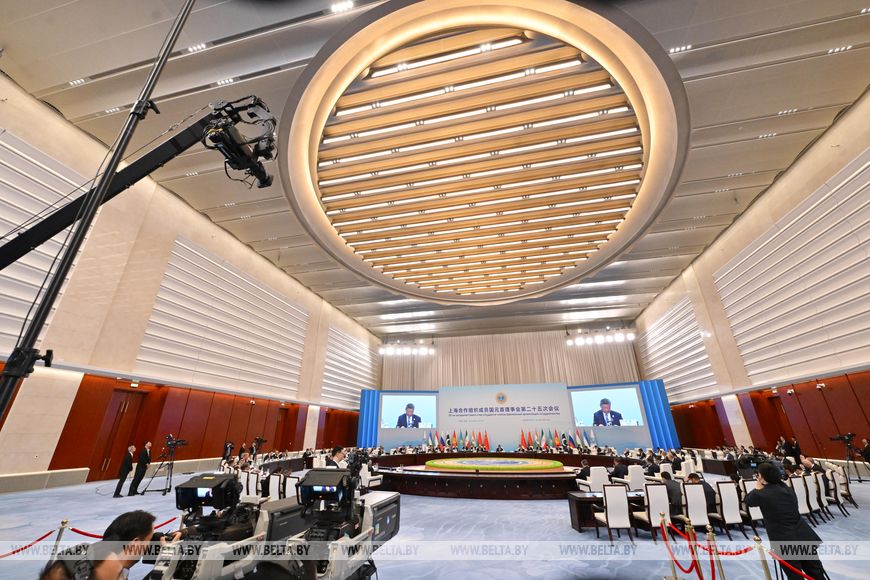
The American portal Axios believes that the White House is attempting to distance Russia, India, and China from one another. However, the SCO summit revealed that Washington's efforts are yielding no results. Rather, the opposite is true. U.S. tariff ultimatums have pushed India further toward Russia and China.
The Quincy Institute for Responsible Statecraft indicates that the policy of ultimatums is harming the U.S. itself. In an analytical piece published by the institute, it is stated that the SCO summit comes during a time of U.S. tariff policy. Due to the tariffs imposed, many countries now perceive the USA as an unreliable partner. Meanwhile, China is seen as a “stabilizer and a hub for trade and technology in Asia and the Global South.”
“Though much of the region has made major compromises with Washington on the tariffs question, summits like the one at Tianjin enable participating states to further push diversification and multi-alignment,” the publication states.
In order to remain relevant, the United States needs to find ways to present itself as a stable and reliable partner, according to the Quincy Institute. “This cannot be achieved through trying to bring back primacy, especially through deepening militarization. A better way may be finding common interests and their joint pursuit with key middle powers in Asia and elsewhere,” the think tank notes.
It can be observed that most publications in Western media tend to draw a line, dividing the world into “us” and “them”. This perhaps reflects the thinking of a unipolar world. While there is an understanding that the world has changed, approaches have yet to adapt, as multipolarity is not about lines, borders, and fences. It is about interaction, peaceful dialogue, equal partnership, healthy competition, and the ability to choose one's path of development.
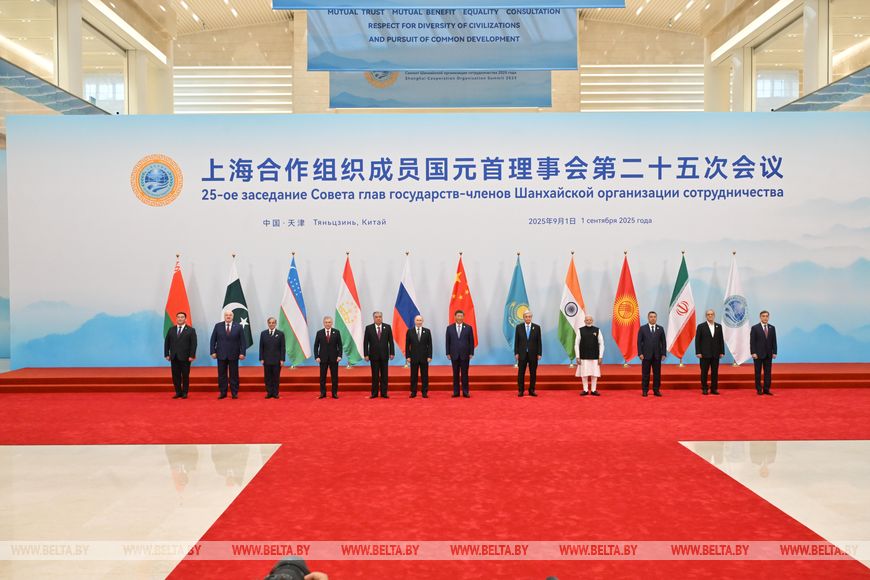
Speaking about multipolarity during the summit in Tianjin, the president of Belarus stated that such unions as the SCO and BRICS are becoming a serious counterbalance, forming a powerful pole on our planet. However, the head of state emphasized that this counterbalance is not being created to the detriment of other organizations—such as the G7, G20, and so forth. “We work for the sake of our peoples,” Aleksandr Lukashenko said.
“We must do everything to not betray the people of our planet and to preserve the hope that nations have when looking at our organizations, first and foremost, the Shanghai Cooperation Organization,” the Belarusian leader added.
Belarus has made its strategic choice. At the same time, our country remains open to Europe and the West as a whole, despite fences, economic aggression, political pressure, and the active militarization of NATO's eastern flank. Belarus continues to build bridges and calls for equal dialogue for the sake of indivisible security in our common multipolar world.
Vita KHANATAYEVA,
BelTA.




